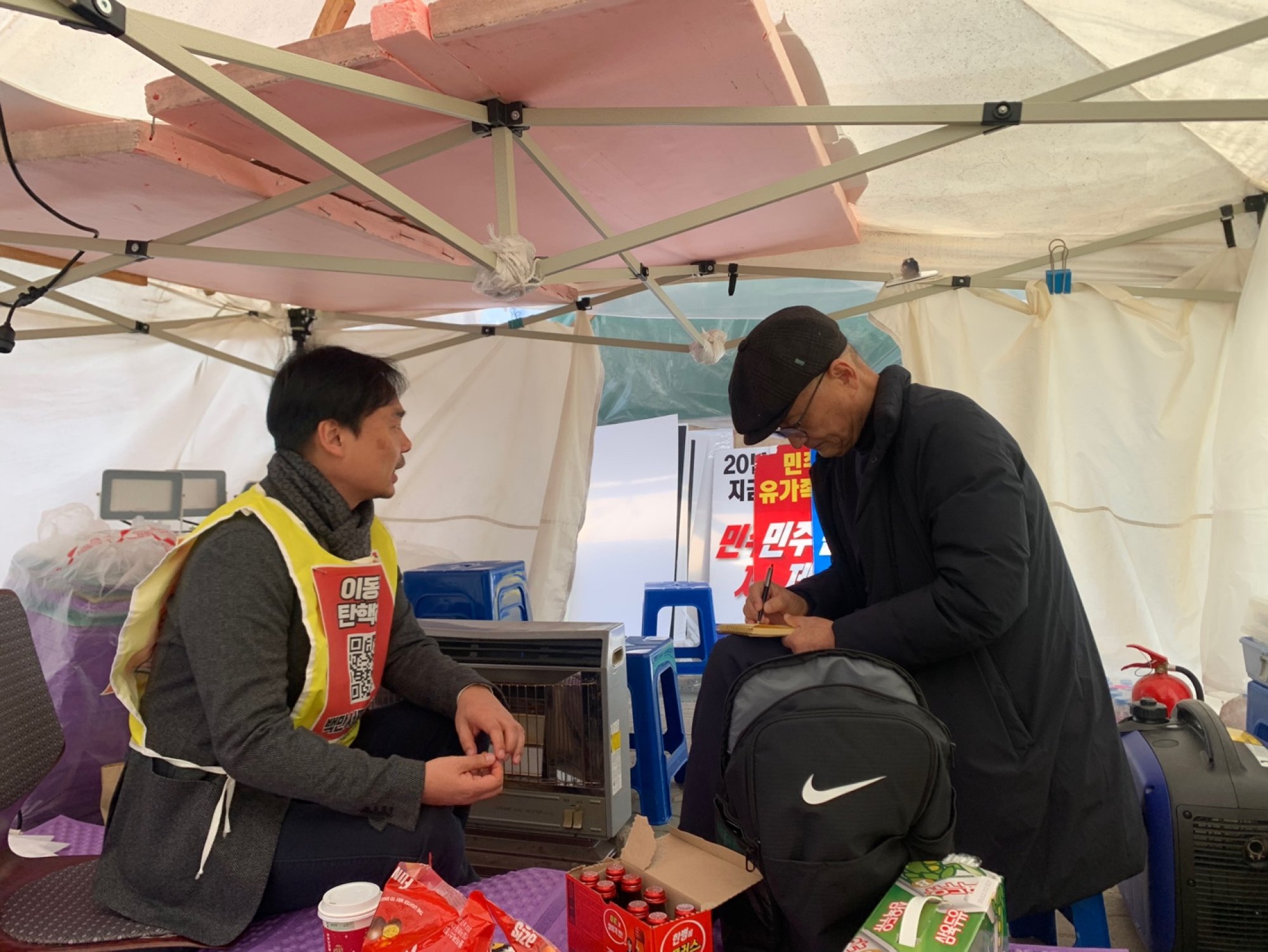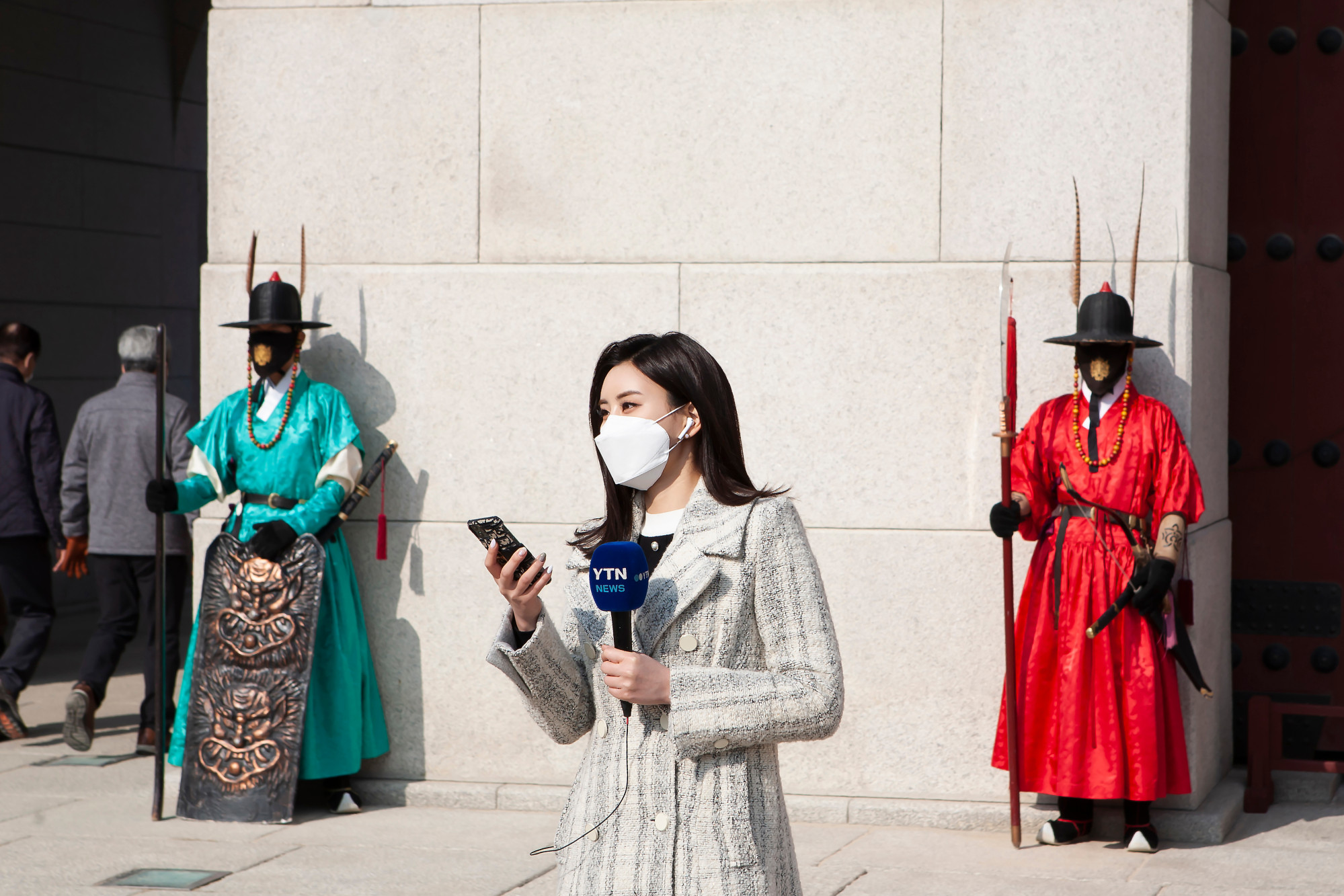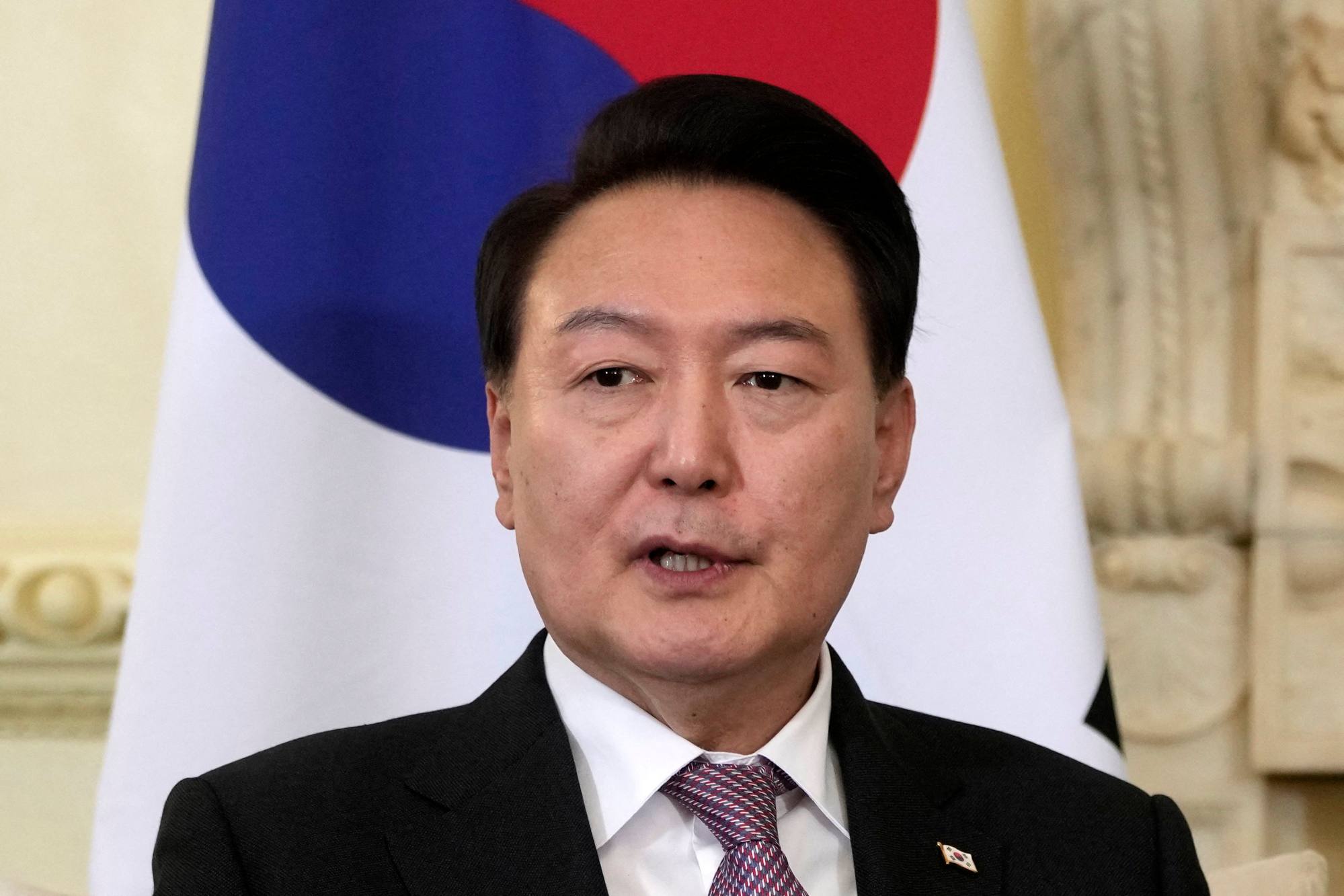Is Yoon silencing South Korean media under the ‘thinly veiled’ guise of fighting ‘fake news’?
In 2018, while the liberal Democratic Party of Korea was in office, it attempted to introduce “punitive” fines against news outlets that spread “fake news”, citing “irrecoverable damage” to reputations and images of individuals and entities.
But this move was met with staunch opposition from media workers and opposition conservatives, who both decried it as an attempt to stifle dissent.
At that time, conservatives who were in the opposition joined forces with media workers in opposing the move, said Yoon Chang-hyeon, head of the NUMW.
“Immediately after they took power [in May 2022], however, they turned on a dime, adopting much more harsh methods to reshape the media in their favour,” Yoon Chang-hyeon told This Week in Asia during an interview held inside the tent from which NUMW is calling for the removal of Lee as head of the KCC, the state broadcasting regulator.
The liberal opposition and media workers have accused Lee of abusing his power to sway media coverage when he served as top presidential media affairs secretary from 2008-2011 during the administration of former president Lee Myung-bak.
The ruling conservative People Power Party refuted such claims, saying Lee Dong-kwan was only attempting to correct “distorted and biased” reports that were prejudicial to good order.

Privatising public broadcasters
The newly appointed KBS board appointed Park Min, a conservative newspaper editorialist, as head of the company. Park Min swiftly shut down popular news programmes, marginalised anchors and news hosts, and publicly apologised for what he declared “biased and partisan” news reports favouring liberals during the previous government.
In a stern warning that sent shivers throughout the media industry, Park Min asserted that he would hold journalists and their desks accountable for any social harm caused by the dissemination of “unfair and biased” reports.
Unpopular Yoon taps ‘blue-eyed Korean’ to shake up ruling party
Unpopular Yoon taps ‘blue-eyed Korean’ to shake up ruling party
This elicited criticism from Choi Kyung-jin, the head of KBS’ viewers’ committee, which is authorised to express views on programmes and their content and request corrections.
“I wonder whether things like this have ever happened in KBS history,” Choi said in a statement, contesting Park’s allegations of biased reporting by KBS.
“This constitutes a blatant breach of [media workers’] rights to create content and a disregard for procedural legitimacy,” he said.
He noted that KBS had consistently polled as one of the country’s most trustworthy news outlets. “Remember that we’re not living in the ’70s or ’80s” when the country was under authoritarian rulers with military backgrounds, he said, adding that viewers had become sophisticated enough to see through lies and deceptions.
The conservatives are also proceeding with the privatisation of the country’s two 24-hour news channels, YTN and Yonhap News TV, whose controlling shares are publicly held.
According to media workers, these changes would prioritise making government-friendly businesses the channels’ largest shareholders under the guise of improving their financial health.
Critics argue that this manoeuvre is designed to place the control of news channels squarely in the hands of government-friendly entities.

Legislative battle
The journalists’ union is also urging President Yoon to accept new laws passed this month by the opposition-controlled National Assembly.
These laws aim to reform the corporate governance of the country’s three state-financed terrestrial broadcasting companies, shielding them from political influences and fostering representation from civic societies and academicians.
However, the ruling party is calling on President Yoon to use his presidential authority to oppose these laws, alleging that they seek to permanently place public broadcasting companies under the control of media workers and liberals.
Conservatives argue that news broadcasts and commentaries by state-financed KBS and MBC are influenced by their strong journalists’ unions, many of which support the liberals. The third public broadcasting company, EBS, is solely focused on educational broadcasts.
In August, KCC abruptly dismissed Kwon Tae-sun, the head of the non-profit Foundation for Broadcast Culture, which holds the controlling share of MBC TV and has the authority to appoint MBC’s president.
The move was seen as an attempt to reorganise MBC TV leadership in favour of the ruling People Power Party. The conservatives assert the company’s news programmes are being manipulated by unionised journalists.
However, a court order in September overturned the decision and reinstated Kwon.
Yoon accused of fanning ‘red scare’ over South Korean city’s shrine for musician
Yoon accused of fanning ‘red scare’ over South Korean city’s shrine for musician
KCC head Lee, in an interview with the conservative Chosun newspaper this month, said KCC’s goal was only to “level the playing field” for terrestrial broadcasting companies, currently perceived to favour liberals supported by journalists’ unions.
He said he would encourage the president to reject the three opposition-backed laws because he believes they would perpetually place broadcasting companies under the control of media workers’ unions.
Furthermore, Lee mentioned that authorities were considering a new law that could force news outlets to shut down if they intentionally and repeatedly spread fake news for political or commercial purposes.
Most major newspapers in the country lean towards conservatism, including the top three, Chosun, Dong-A, and Joongang. Conversely, the independent Hankyoreh and Kyunghyang represent voices from labour unions and liberals.

Fake news fears
In recent months, President Yoon has repeatedly warned against “fake news”, asserting that it jeopardises freedom and democracy by manipulating elections.
He has grouped his opponents and critics together, labelling them as “communists and their vassals and opportunists”.
During a speech commemorating the 78th anniversary of Korea’s liberation from Japan’s colonial rule, President Yoon criticised “anti-state forces” for distorting public opinion and causing societal disruptions through propaganda supporting “communist totalitarianism”. This stance triggered strong protests from opposition parties and civil societies.
“Communist totalitarian forces have always disguised themselves as pro-democracy activists, human rights activists, and progressive activists while engaging in false propaganda and dirty tricks,” he said. Critics drew parallels between his rhetoric and anti-communist fearmongering reminiscent of the McCarthy era in the United States in the 1950s.
Following Yoon’s lead, others in the ruling camp are fervently advocating for the eradication of “fake news” in the lead-up to the crucial general elections in April.
Prosecutors in September raided JTBC TV and online news outlet Newstapa as part of an investigation into “fake news” that suggested the president had helped cover up a crime during his tenure as a prosecutor in 2011.
The “false” report swayed many voters at the 2022 presidential election, which was marginally won by Yoon, according to KCC head Lee.
Prosecutors charged several journalists with defamation relating to their reporting, alleging they had spread falsehoods with the intent of discrediting then presidential candidate Yoon.
‘Reports differ from the facts’: South Korea’s Yoon scolds media over hot mic
‘Reports differ from the facts’: South Korea’s Yoon scolds media over hot mic
An MBC TV reporter who produced the story later had her home raided by investigators, who combed through her belongings, including her underwear. Authorities said the raid was not directly related to the hot-mic incident but a different case concerning her alleged leak of private information.
Critics have accused the government of seeking to silence unfriendly news media by labelling critical news reports as “fake news”, a loaded term they say should be replaced by “misinformation” or “disinformation”.
NUMW head Yoon Chang-hyeon said democracies shouldn’t have the power to label news reports as “fake news”, mandate their removal, impose fines on outlets or shut them down.
When inaccuracies are identified in news reports worldwide, outlets issue corrections along with apologies, and occasional errors should be tolerated as part of press freedom, Yoon said. “This government must answer this question: are you really intent on endorsing democracy?”

